TRENDING
Incredible Photos Of The Titanic
Published
5 years agoon
On the 10th of April, 1912, the RMS Titanic, a British passenger liner, set sail for its maiden voyage from Southampton England to New York City. At 11:40 P.M. on April 14th, 1912, the maiden voyage would come to an abrupt end when the RMS Titanic struck an iceberg in the North Atlantic Ocean and sank 2 hours and 40 minutes later.
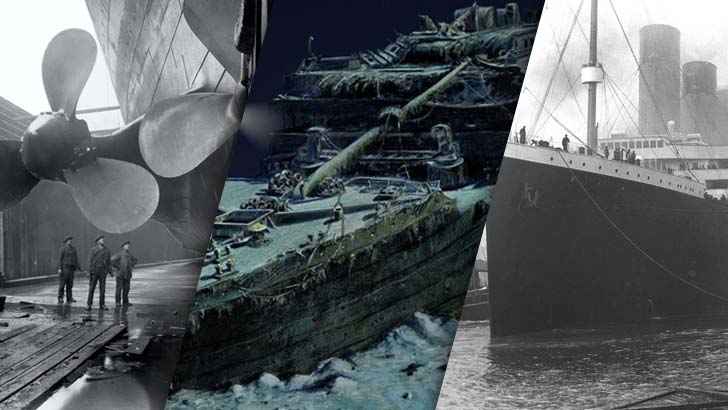
70 years later its remains would be discovered on the seabed where they continue to disintegrate today. Click NEXT to proceed.
The RMS Titanic, Olympic Class Ocean Liner
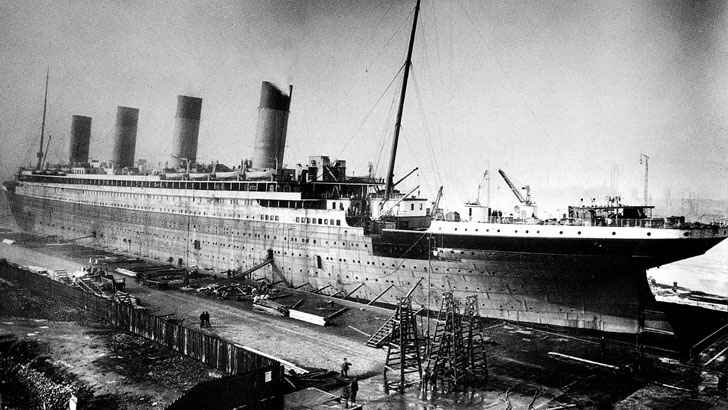
The Titanic is the 2nd largest ocean liner wreck in the world, beaten by her sister the HMHS Britannic. Its Gross Register Tonnage GRT was 46,328, measured 882 ft. 9 inches long, and stood 175 ft. high.
Built By Harland And Wolff, Heavy Industries Ltd.
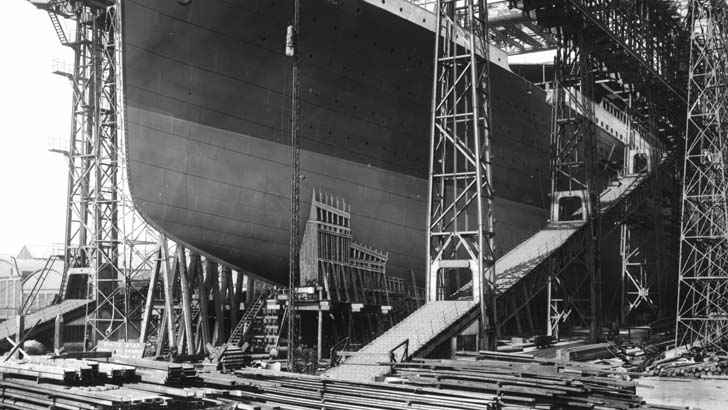
The RMS Titanic was constructed by a Northern Irish heavy industrial company located in Belfast, Ireland. At a cost of 7.5 Million U.S. Dollars. It was laid down March 31st, 1909 and completed April 2nd 1912. The architect of the RMS Titanic, Thomas Andrews, died when she sank.
Captain Edward John Smith
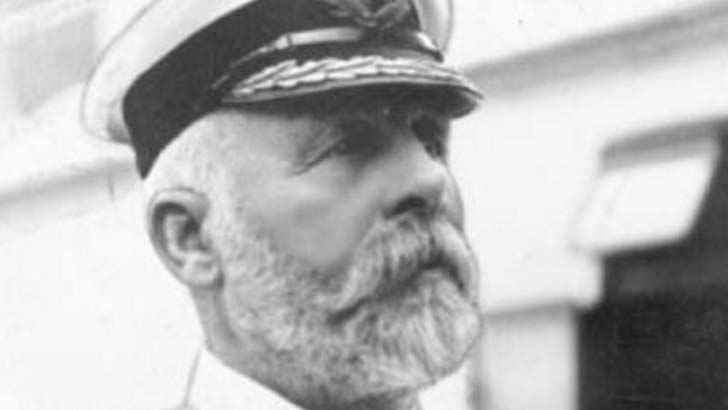
Edward John Smith, RD was a British Merchant Navy officer. He served as master of numerous White Star Line vessels. He was the captain of the RMS Titanic during its maiden voyage, and perished when it sank.
Sea Trials
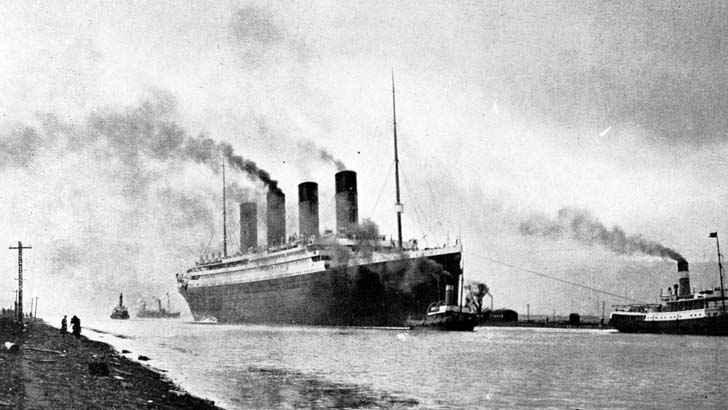
Seen here the RMS Titanic is in her sea trials, on April 2nd of 1912.
Passengers Boarding
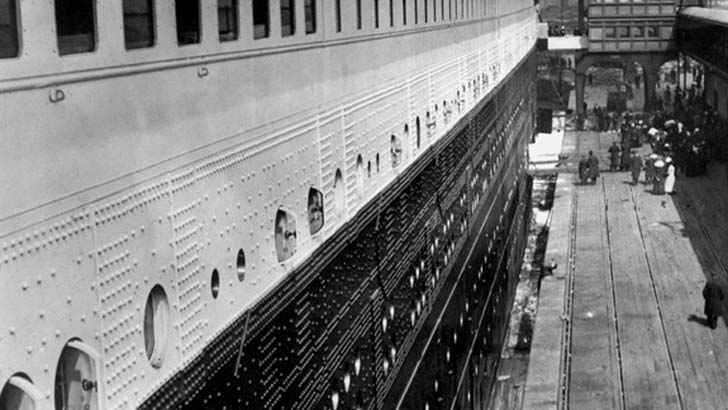
These passengers are boarding the RMS Titanic as it is docked in Southhampton.
Passengers On The Deck
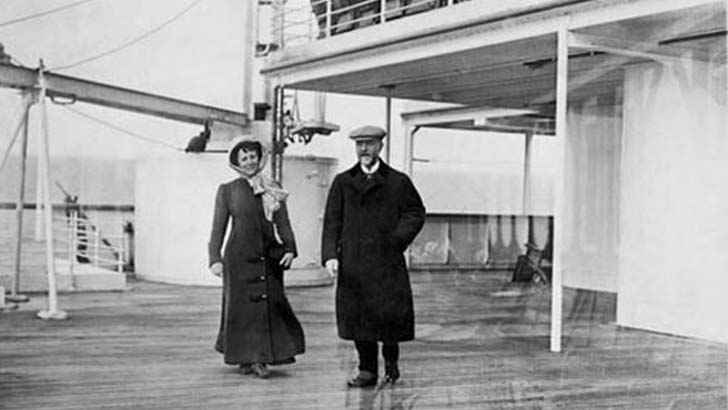
Passengers on one of the decks of the RMS Titanic.
Before The Maiden Voyage
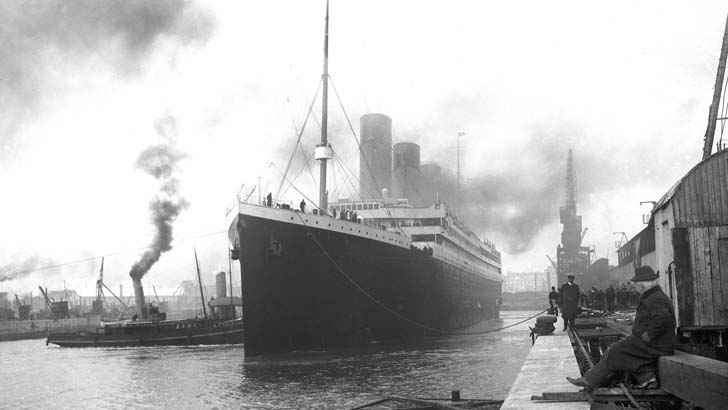
The RMS Titanic docked in Southhampton before departing for her maiden voyage.
The Iceberg
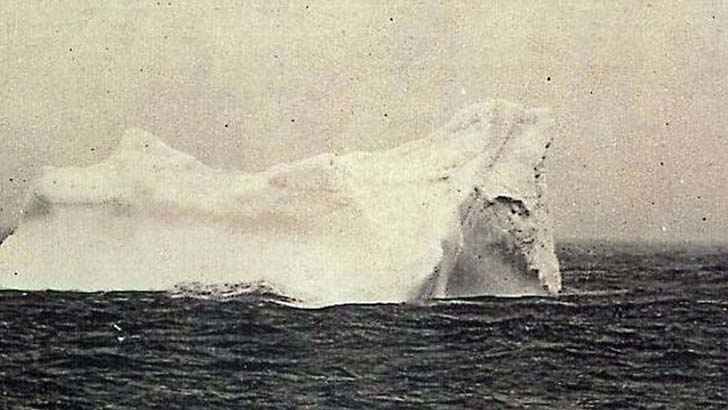
The iceberg that sank Titanic would have been up to a mile long, displacing around a billion tonnes of seawater. Scientists believe it could have been as much as 15,000 years old by the time the RMS Titanic struck it, starting out as just a snowflake.
The Captain’s Bridge
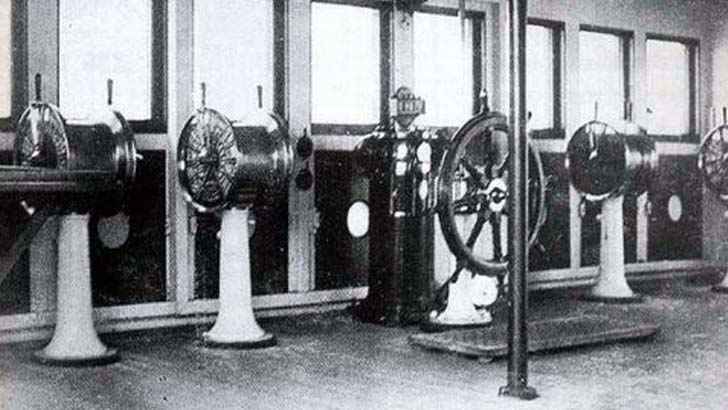
The Captain’s Bridge of the RMS Titanic.
The Boiler Room
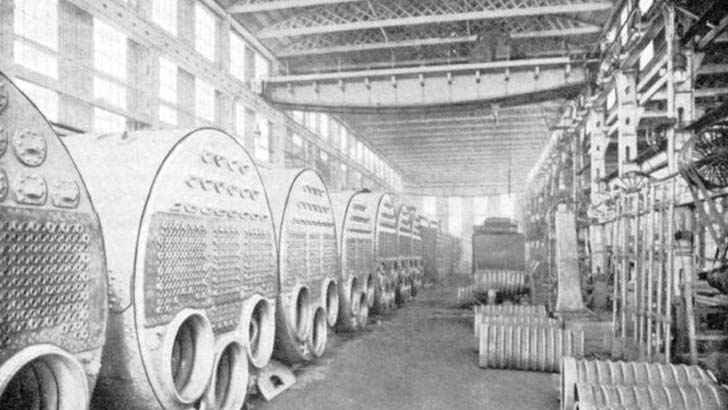
The 29 boilers that produced the steam which powered the RMS Titanic were 15 ft. 9 inches in diameter and 20 ft. long. They were heated by a crew of 176 round the clock firemen who shoveled coal into the 159 furnaces on board.
The Engines
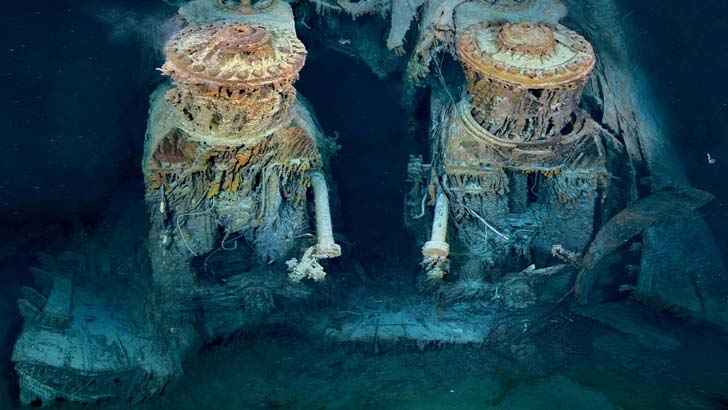
There were 3 main engines on the RMS Titanic, 2 reciprocating 4 cylinder, triple expansion steam engines and 1 centrally located low pressure parsons turbine. Each drove a single propeller.
Wreckage On The Seafloor
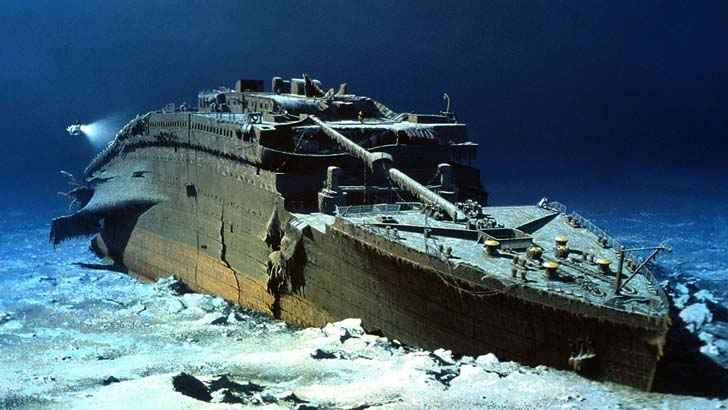
This photo illustrates part of the overall wreckage of the Titanic as it is today.
Nearing Completion
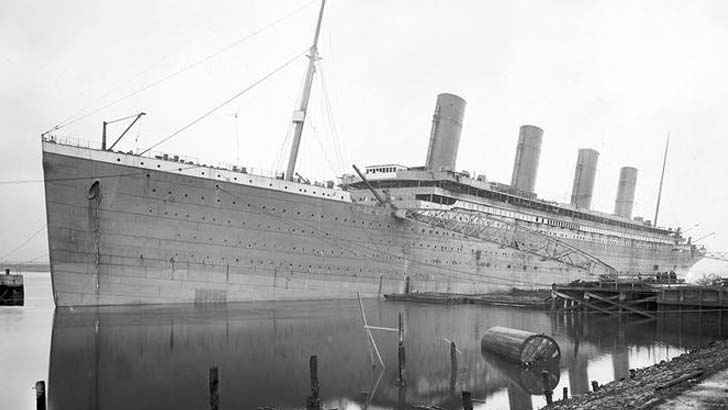
The RMS Titanic sits near the slipway in Belfast here awaiting sea trials.
Propeller Shafts
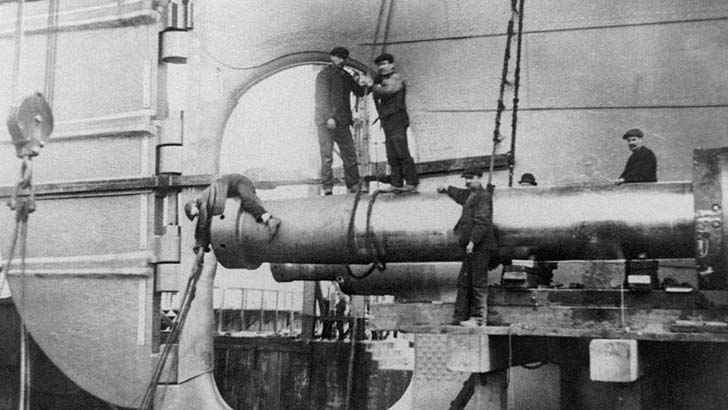
Large shafts where the propellers attached were directly linked to the engines. The middle propeller could be stopped but not reversed.
The Propellers
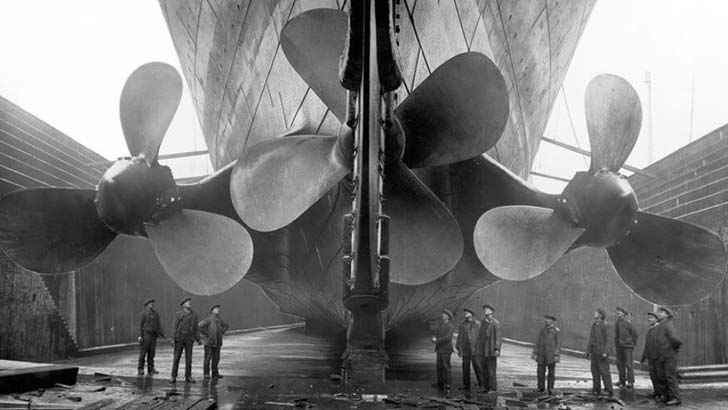
There were 3 propellers, one for each engine. They were constructed with manganese bronze alloy. The 2 outer propellers were 23.5 ft. in diameter, and the middle one was 17 ft. diameter.
The Rudder
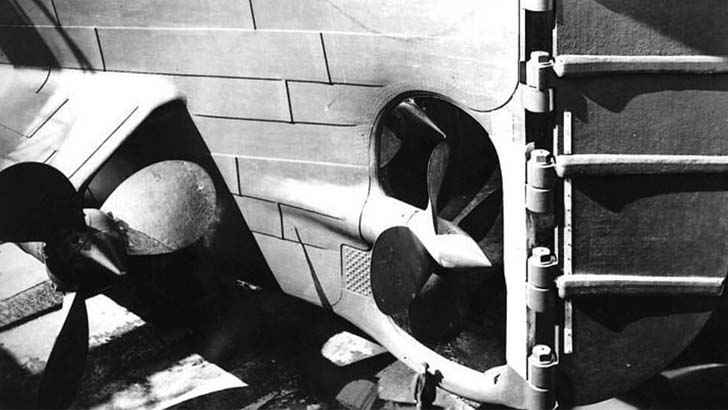
The RMS Titanic’s rudder alone weighed over 100 tons, it was 78 ft. 8 inches high and 15 ft. 3 inches long. The rudder required a steam powered engine of its own to steer the ship. 2 engines were installed, but only 1 was used.
The Communications Room
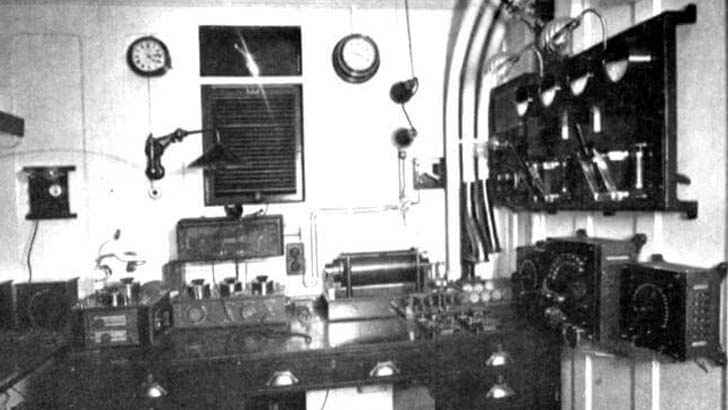
The radio room was located on the Boat Deck, in the officers quarters. The radio service maintained a 24 hour schedule, primarily sending and receiving telegrams, but also handling navigation messages including weather reports and ice warnings.
The Anchors
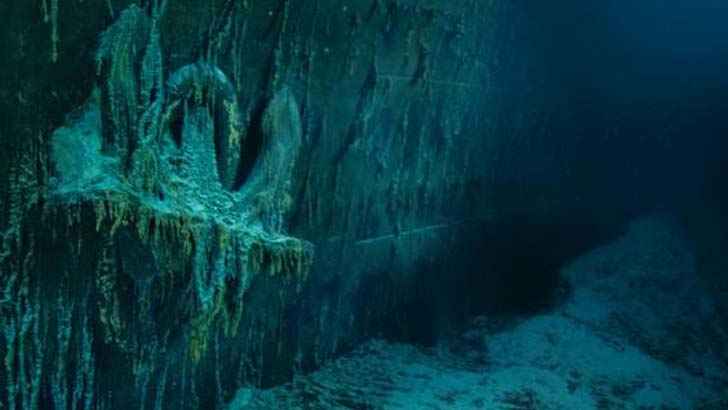
The RMS Titanic had 2 anchors, each weighed 15 tons.
Whistles
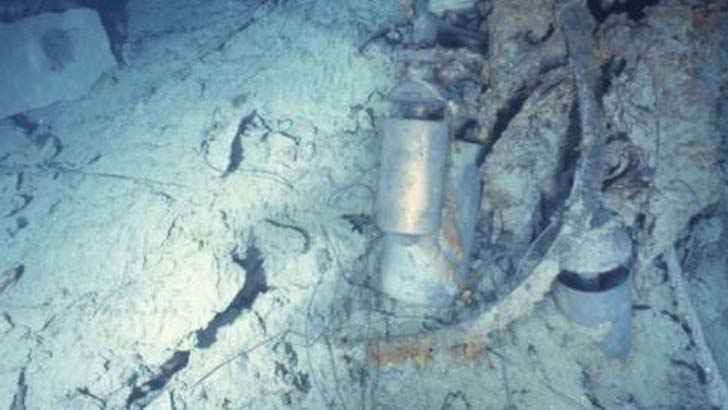
The RMS Titanics whistles weighed in at just over 750 lbs a piece and stood 4 ft tall. They were powered by steam and sounded to indicate daily shift duties for the White Star Line crew. They were also used to alert entrance or exit from a port.
Toppled Mast
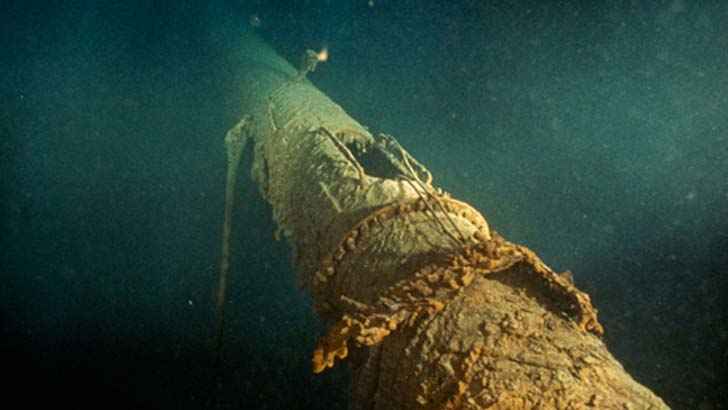
Titanic was rigged with two pole masts spaced about 600 feet apart. These masts were made of steel, except for a 15-foot teak section at the top of each mast. The tops of the masts stood approximately 205 feet above the maximum load line, a height necessary to accommodate the Marconi aerial wires.
“Titanic Era Fashion”
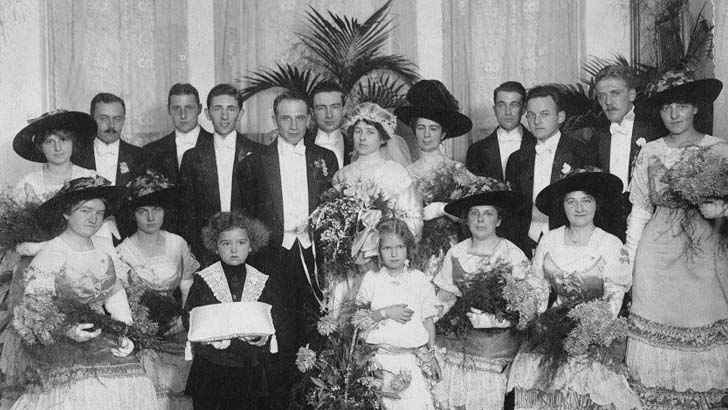
This wedding photo was taken in Staten Island, New York in 1912. The way these people are dressed has been come to be known “Titanic Era Fashion,” due to people connecting fashion at that time to the news of the sinking of the RMS Titanic.
The Grand Staircase
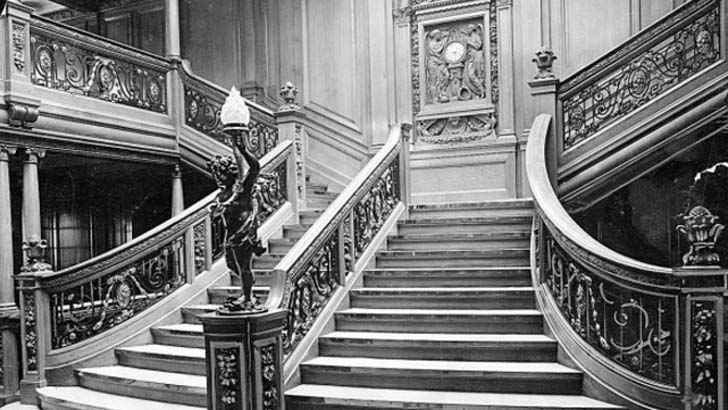
The first class staircase descended through 7 decks of the ship. Each landing of the staircase gave access to ornate entrance halls lit by gold plated light fixtures. The uppermost landing featured a large carved wooden panel containing a clock. It is believed that the staircase may have been ejected upward through the dome above under the pressure of the water the ship was taking on when it sunk.
The Strauss Suite
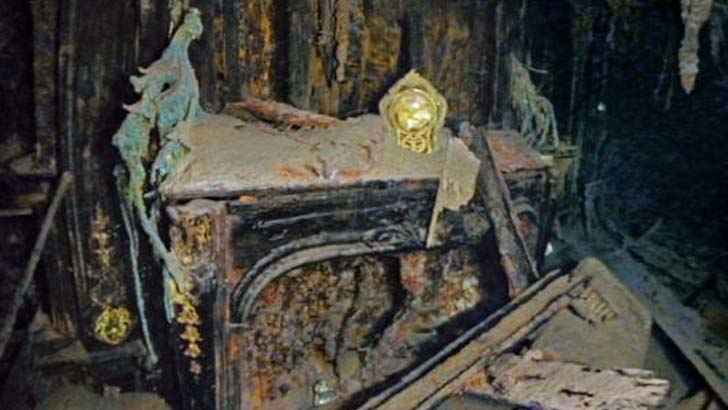
A gilded clock remains in tact atop a luxury fireplace in one of the Strauss Suites. The hands on the clock are stuck at 2:04.
Capacity
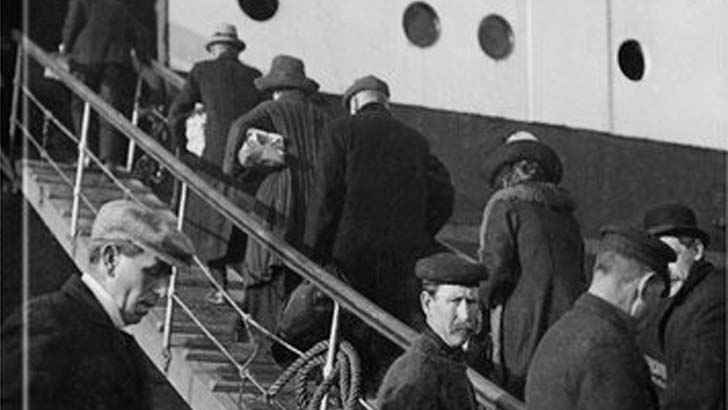
Total capacity for the RMS Titanic accommodated 2,435 passengers and 892 crew members. When it sank there were 2,224 passengers and crew aboard, of those more than 1,500 were killed.
The Strauss Suite
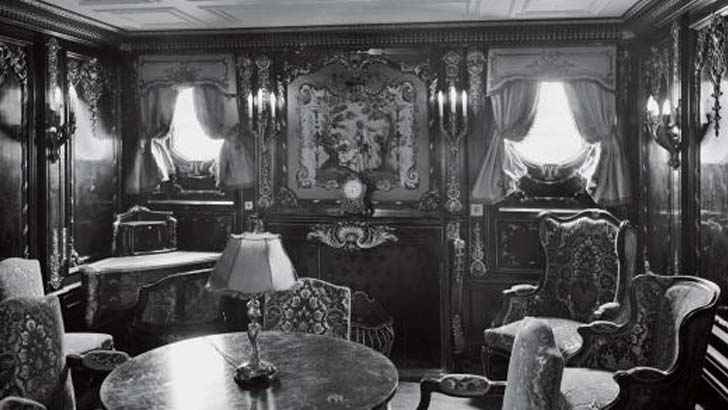
The Strauss suite was the most opulent suite on the ship. It was one of 4 Parlor Suites which included one bedroom, a sitting room, two wardrobes, one bathroom, and 1 fireplace.
Leaving Southhampton
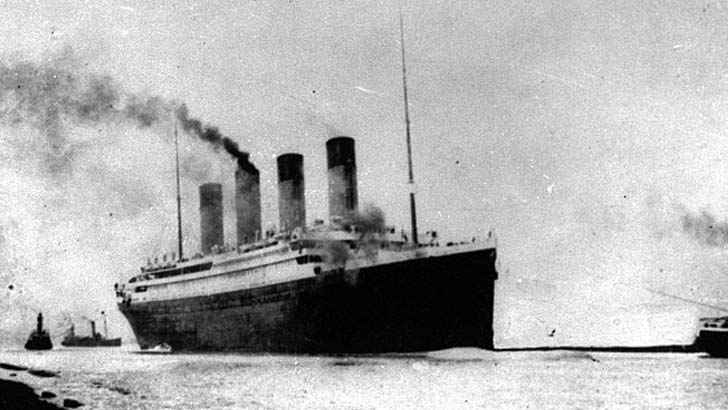
This photo was taken as the RMS Titanic was leaving for its maiden voyage, on April 10th, 1912.
1st Class Reading Room
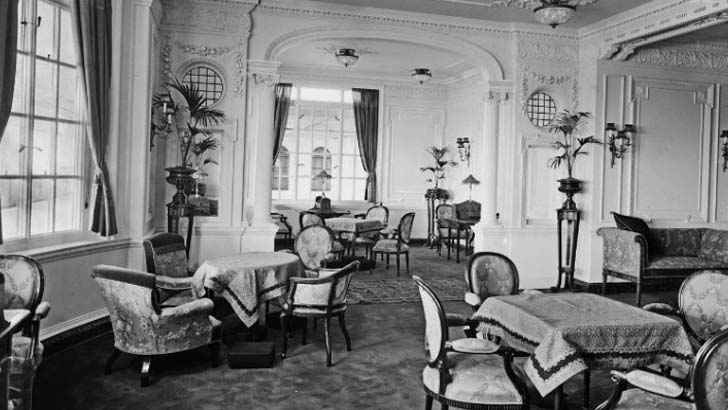
The Reading and Writing Room was a leisurely space on A-Deck for relaxation, reading, and writing home to family and friends. The room was on the Port side of the long corridor which connected the Grand Staircase to the Lounge and was reserved for female use.
The Turkish Baths
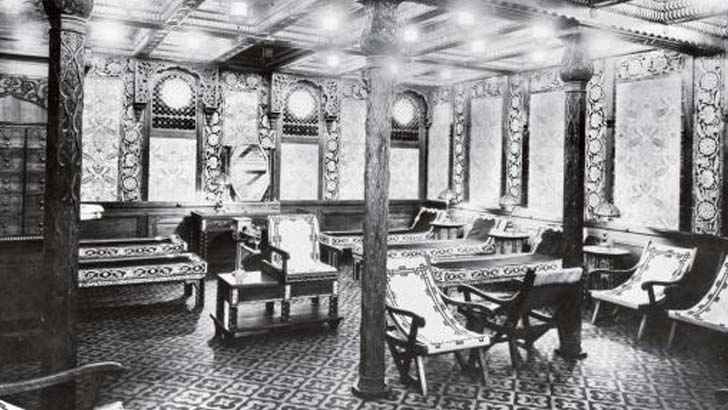
For a charge of four shillings, or one dollar, First Class passengers could soothe away their aches and pains at the Turkish Baths. This suite had a steam room, a hot room, a temperate room, shampooing rooms, toilets and a cooling room. There was also an ultra-modern innovation – electric beds that applied heat to the body using electric lamps.
The Turkish Baths
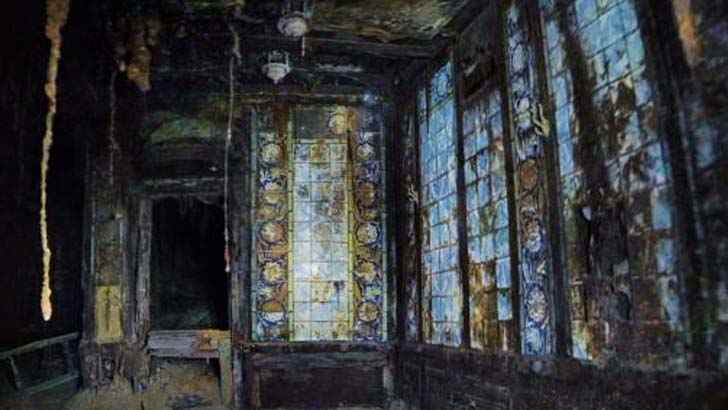
The Turkish Baths as they are today.
First Class Promenade Deck
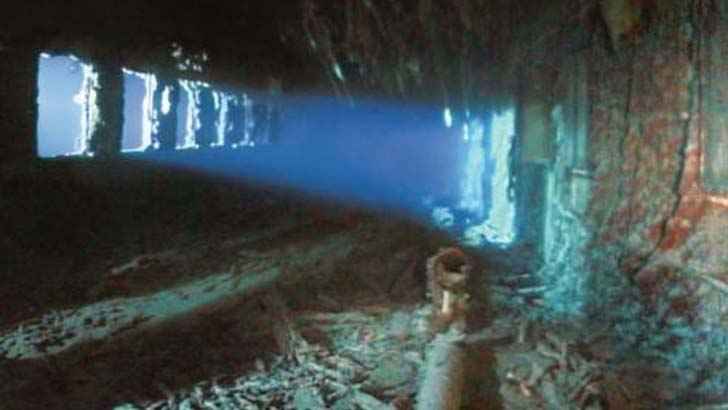
The Promenade Deck as it is now.
First Class Promenade Deck
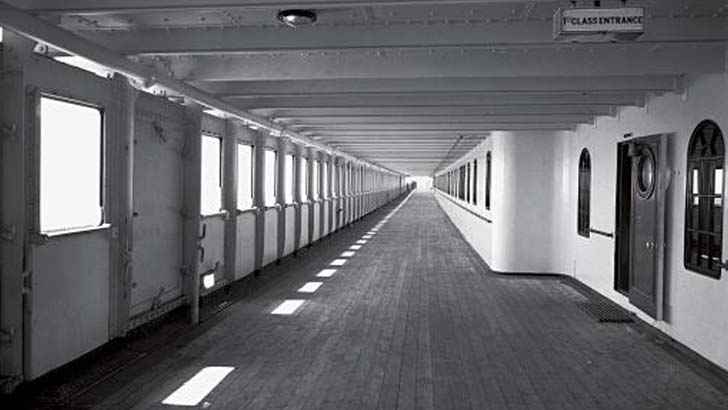
The Promenade Deck of the RMS Titanic was located underneath the top deck, and was reserved for first class passengers.
First Class Cabin
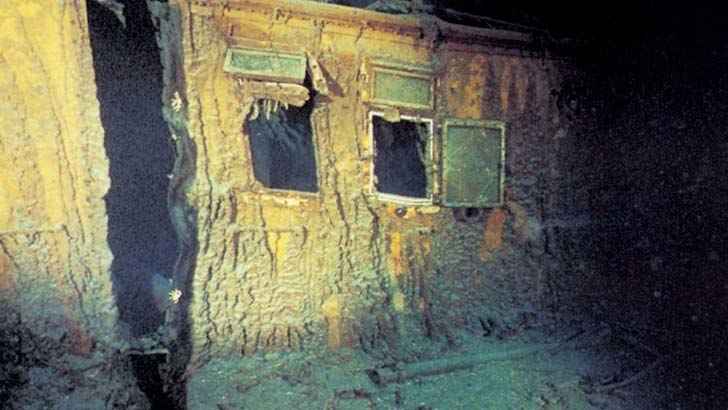
These windows open to a first class cabin.
2nd Class Staircase
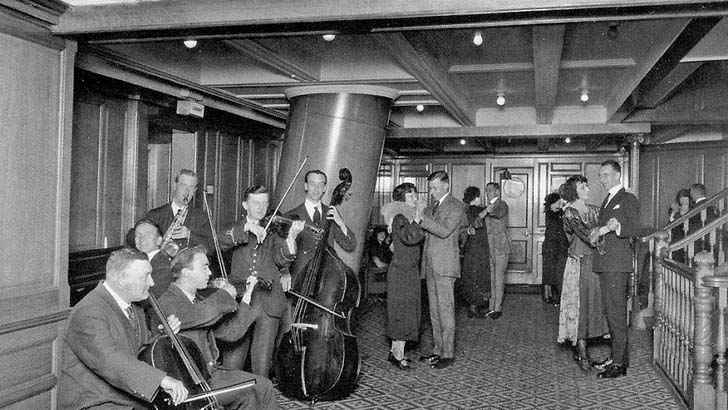
This band is playing on a landing near the 2nd class staircase.
Renault
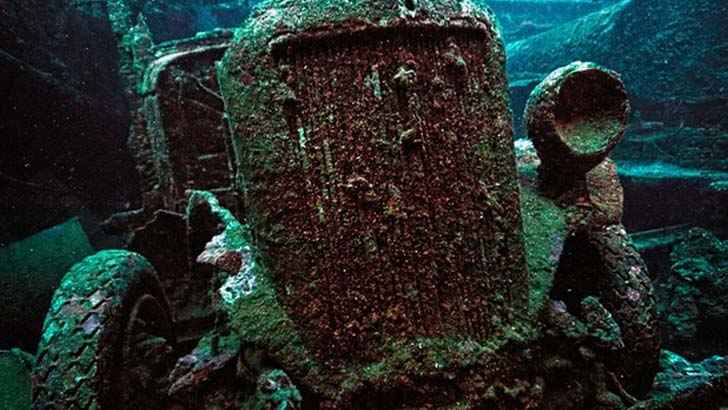
An insurance claim of $5,000 was brought forward from William Carter, over the loss of his Renault automobile. This vehicle was depicted in the 1997 James Cameron film “Titanic.”
Crew Members Given Clothing
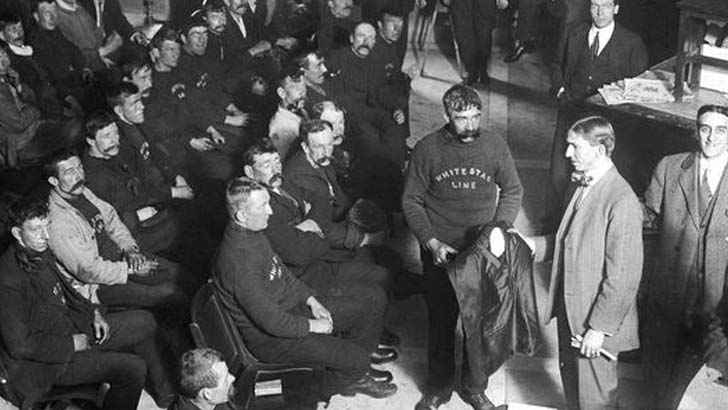
Survivors had many, if not all, of their personal items perish in the disaster. Here are some members of the White Star Line crew receiving some clothing to get them by.
The Boilers
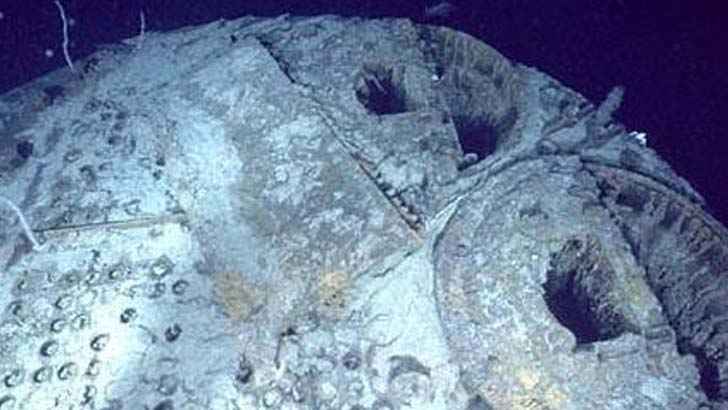
Each boiler weighed 91.5 tons and was capable of holding 48.5 tons of water.
Lifevests
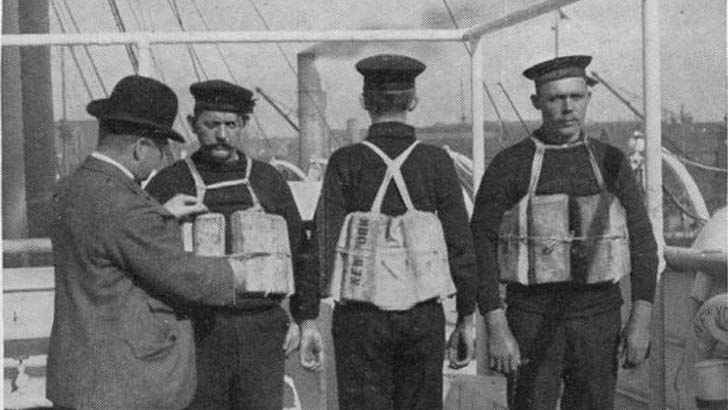
Here are some members of the White Star Line Crew wearing some life vests.
People Wanting Answers
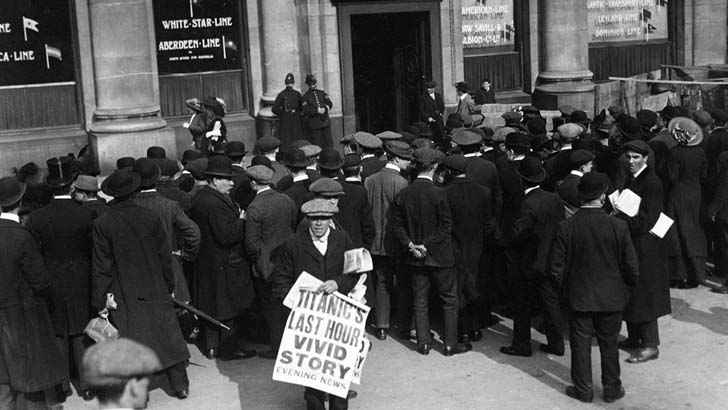
This crowd gathered outside the White Star Line office, looking for answers about the Titanic disaster.
Glass Dome
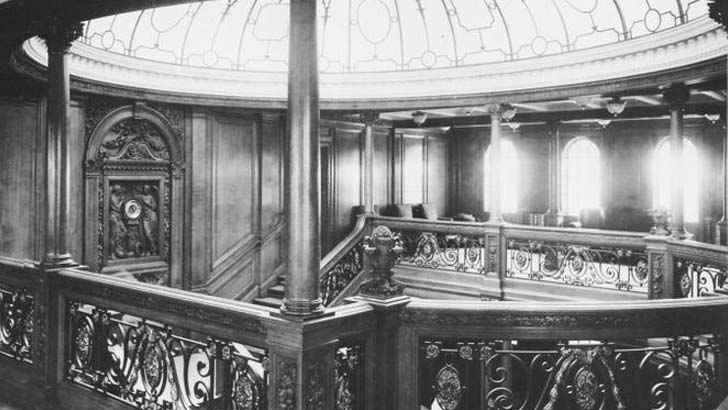
This glass dome sat above the top of the Grand Staircase. In James Cameron’s Titanic film, it was depicted as imploding as several tuns of water rushed into the ship.
Third Class Passengers
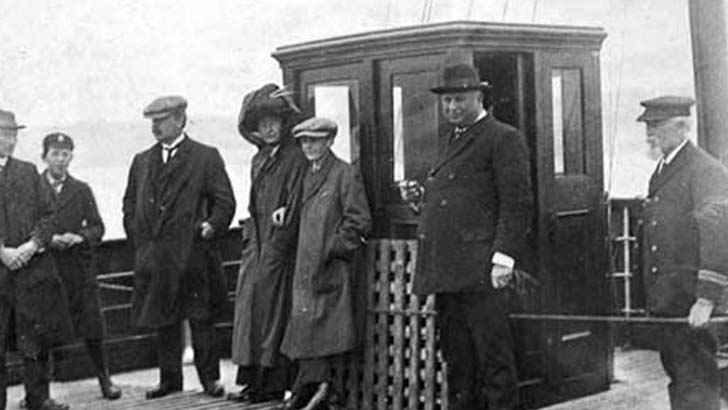
Third class passengers on the RMS Titanic.
Honeymooners
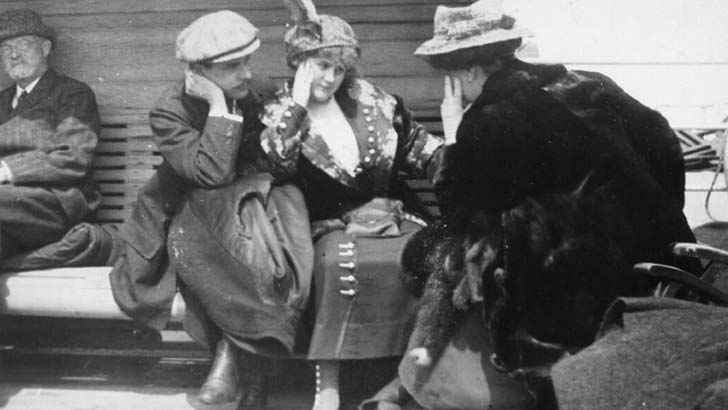
Mr. & Mrs. George A. Harder of Brooklyn, New York, had been on the Titanic to celebrate their honeymoon. The woman with her back to Bernie’s Brownie camera is Mrs. Charles M. Hayes; her husband was President of the Grand Trunk Railway. He died in the shipwreck, but Mrs. Hayes and her two daughters were rescued by Carpathia.
Woman Selling Lace
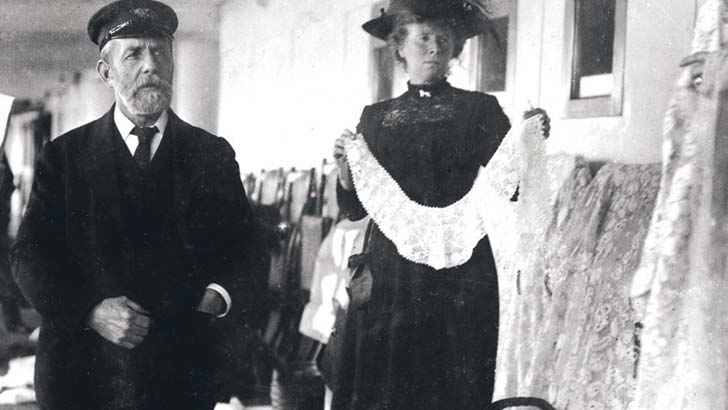
This woman was selling her goods, Irish Lace. Captain Smith passes her by.
Madeleine Talmage Force Astor
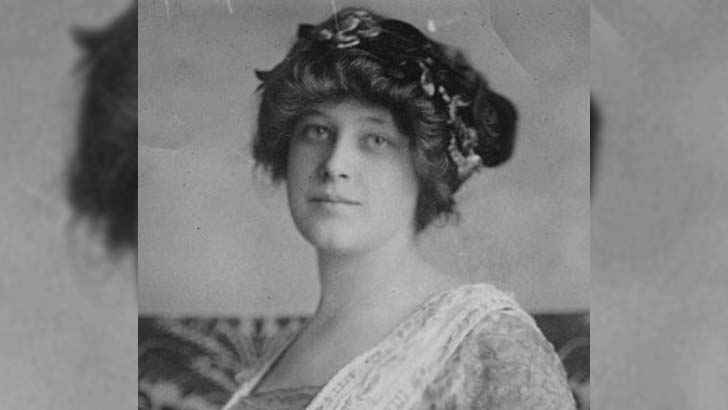
Madeleine Astor was an American socialite and a survivor of the RMS Titanic. She was also the second wife and widow of businessman John Jacob Astor IV. Astor, then five months pregnant, boarded the Titanic as a first-class passenger in Cherbourg, France. She later died of a heart ailment at her mansion in Palm Beach, Florida, on March 27, 1940, at the age of 46.
John Jacob “Jack” Astor IV
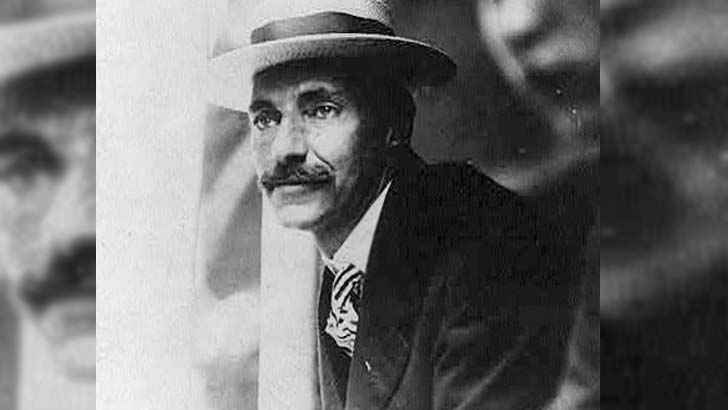
Astor was an American businessman, real estate builder, investor, inventor, writer, lieutenant colonel in the Spanish–American War, and a prominent member of the Astor family. He died in the sinking of the RMS Titanic during the early hours of April 15, 1912. He was the richest passenger aboard the Titanic and was thought to be among the richest people in the world at that time, with a net worth of nearly $87 million when he died.
Closeup Of Lifeboat Cranes
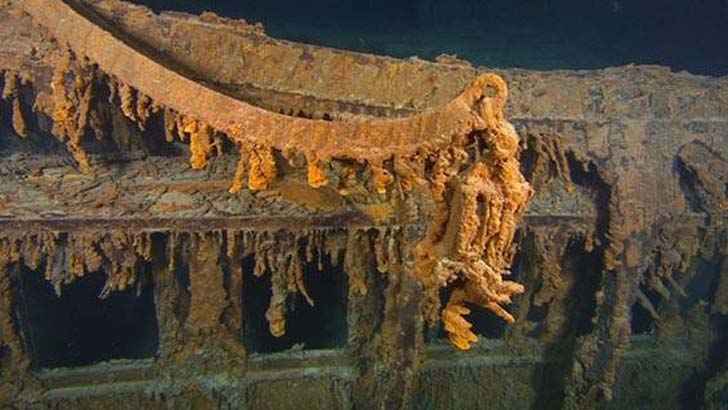
The cranes used for lowering the lifeboats, as they are today.
Lifeboat Rack
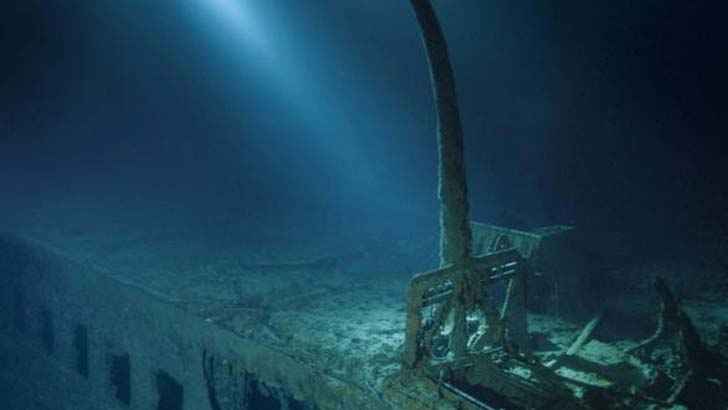
The racks used to store the lifeboats, as they are today.
Lifeboats At Pier 59
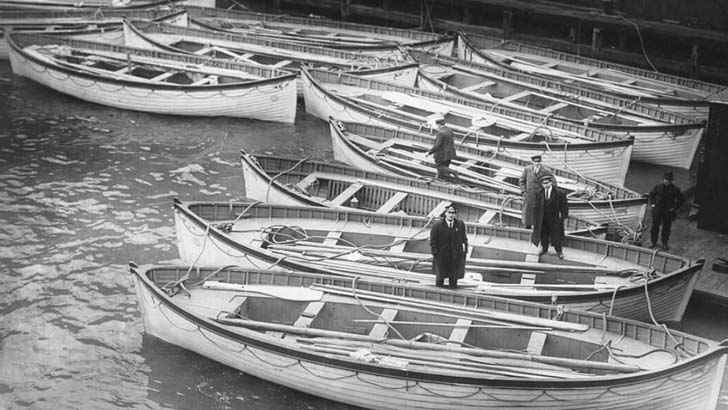
On April 18, 1912 Carpathia docked at Pier 54 in New York with the Titanic survivors. Carpathia dropped off the now empty Titanic lifeboats at Pier 59, before unloading the survivors at Pier 54.
Lifeboat Being Lowered
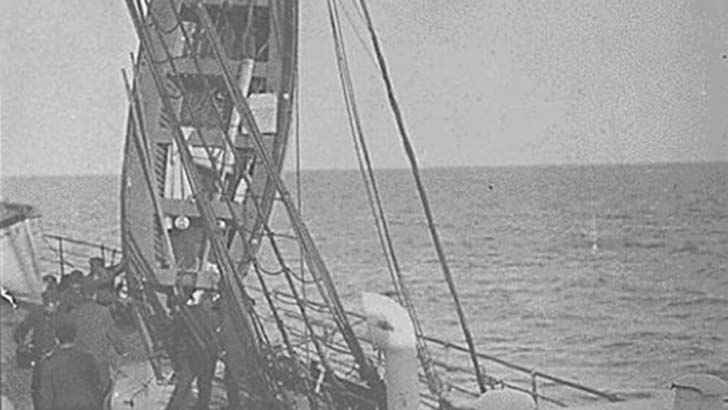
Lifeboat being lowered into the Atlantic using the crane pulley system.
The Forward Bow
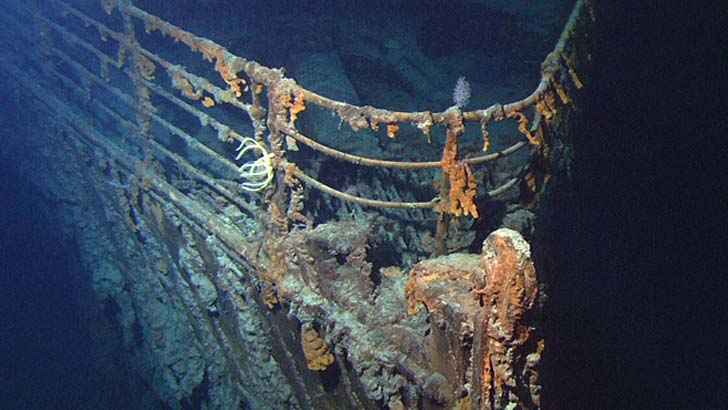
The forward bow of the RMS titanic as it is today. Scientists recently discovered a rust eating bacteria in the water surrounding the wreckage. As the ship continues to gather rust on the bottom of the Atlantic, the overall deterioration has accelerated.
Passengers On Lifeboats
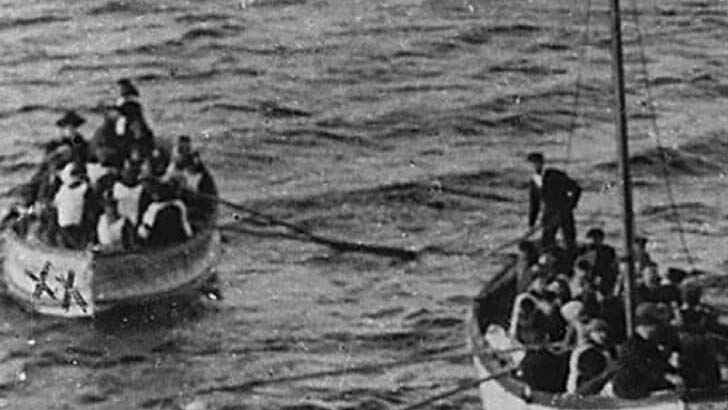
These passengers would be rescued by the Carpathia, here they are seen waiting in lifeboats.
Passengers On Lifeboats
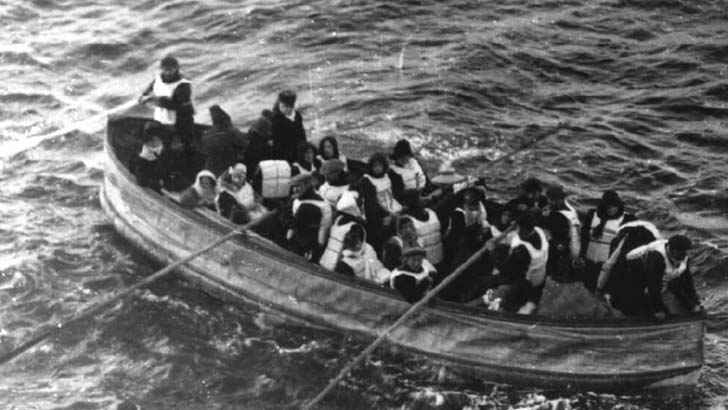
These passengers are awaiting rescue from the Carpathia.
Survivors On The Carpathia
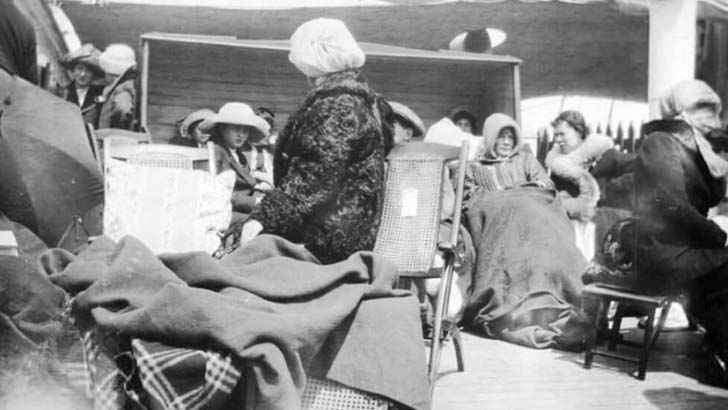
These are some of the surviving passengers from the RMS Titanic, now on the Carpathia.
Passengers On The Deck
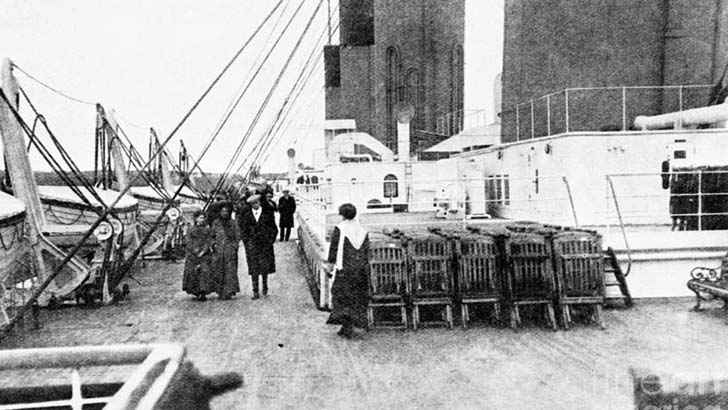
Passengers can be seen here walking 1 of 10 decks that were on the RMS Titanic.
The Rudder Under Construction
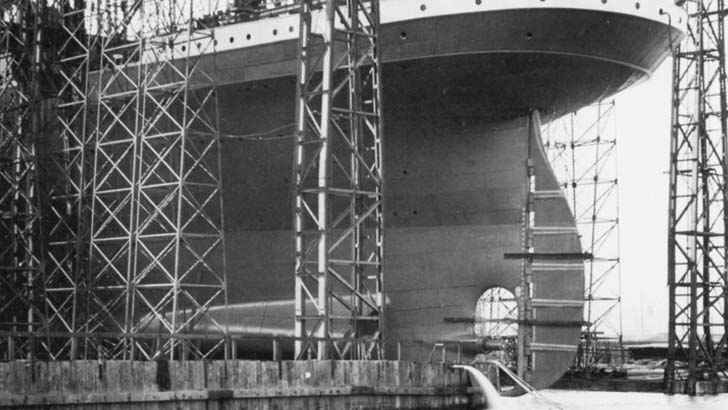
The RMS Titanic in the Great Gantry, a photo of the propeller system.
Open Gangway Door
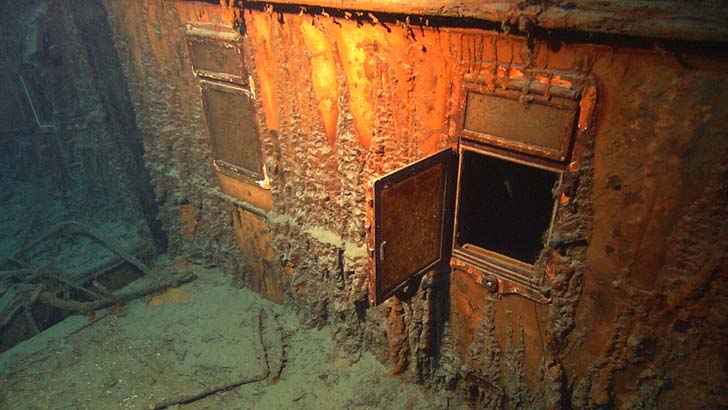
This opening belongs to the Gangway Door on the port side of the ship. The photo was taken in 1994 and the door has since fallen off. It was recovered and is now part of a traveling exhibition.
Standard Single Bed Cabin, 1st Class
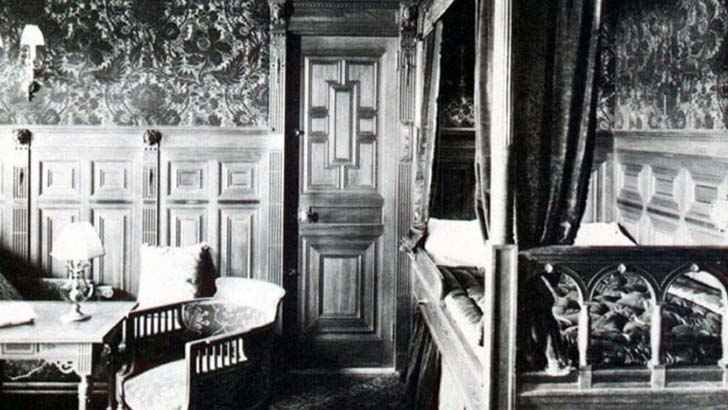
This is a standard single bed cabin for 1st class passengers.
The Stern
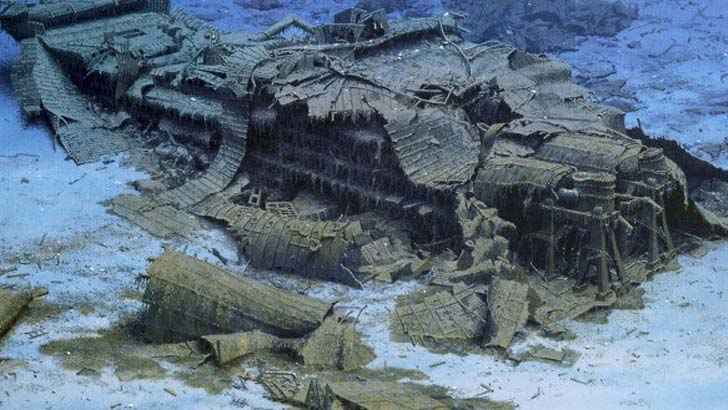
The stern of the RMS Titanic as it is today.
Surviving Crew
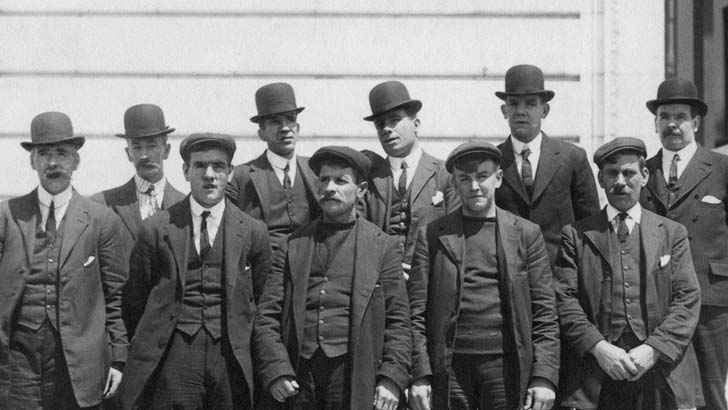
These are surviving crew members of the RMS Titanic.
The Bow
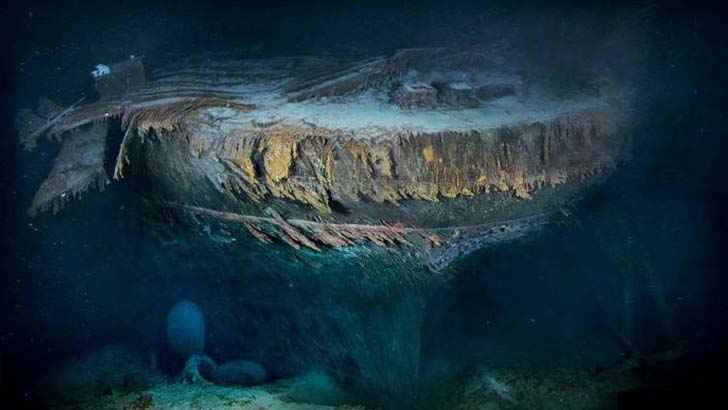
The bow of the RMS Titanic.
The Crew
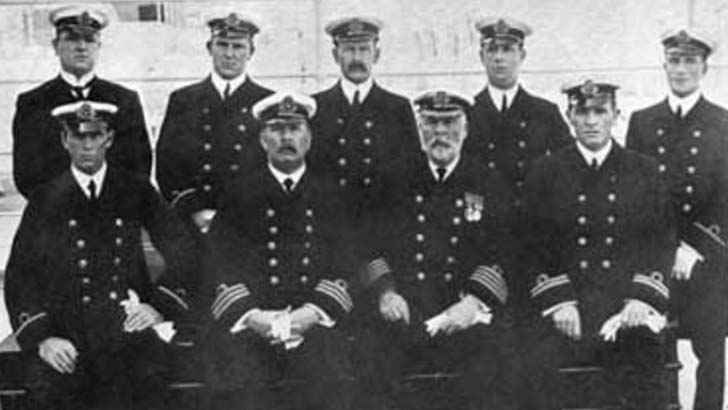
Captain Edward Smith pictured here with other members of the White Star Line crew.
Propeller
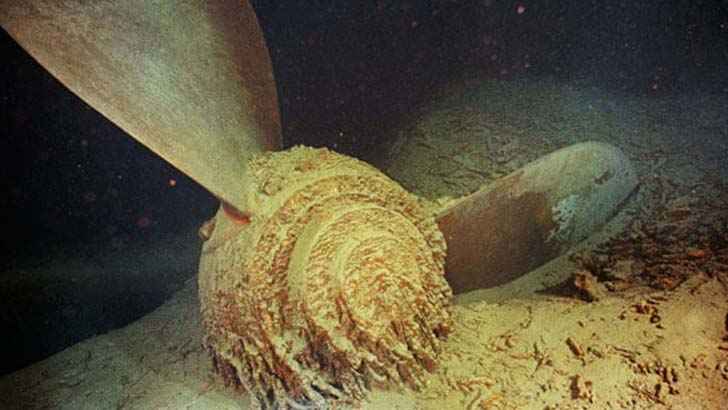
Here is one of the ship’s massive propellers as it is today.
Dishes

Lost items discovered during exploration.
Boots
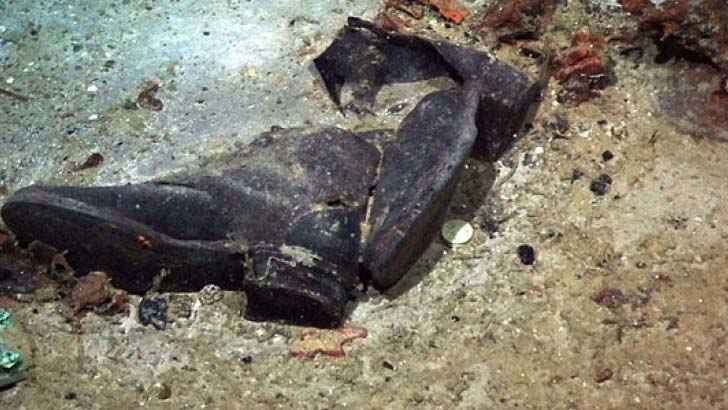
Lost items discovered during exploration.
Dishes
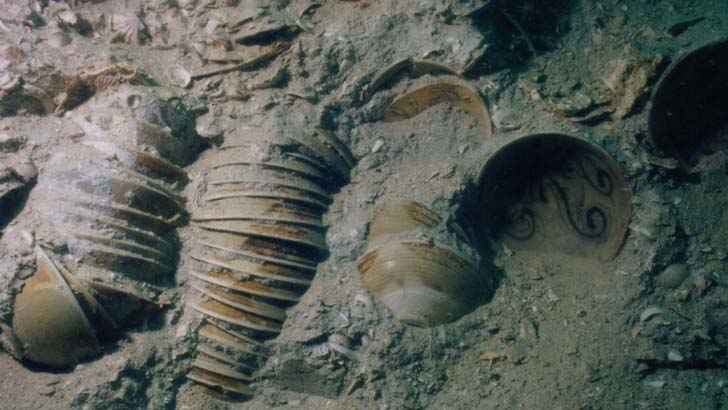
Lost items discovered during exploration.
More From Bon Voyaged
-

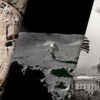
Unsolved Scientific Mysteries From History
-


The Most Amazing Ocean Creatures
-


Most Iconic Wedding Dresses Ever
-


Incredible Celebrity Swimming Pools
-


These Are The Most Valuable Items To Ever Be Featured…
-


Celebs Who Are Actually Related
-


Hollywood’s Shortest Men In Entertainment
-


Athletes Who Lost it All
-


Celebrity Weight Loss Transformations
-
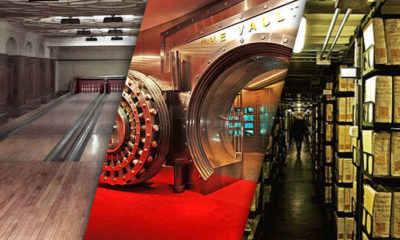
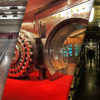
Strange Places Totally Off Limits
-


Pro Wrestlers Then & Now
-

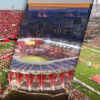
The Top 35 NFL City Expansion Targets

